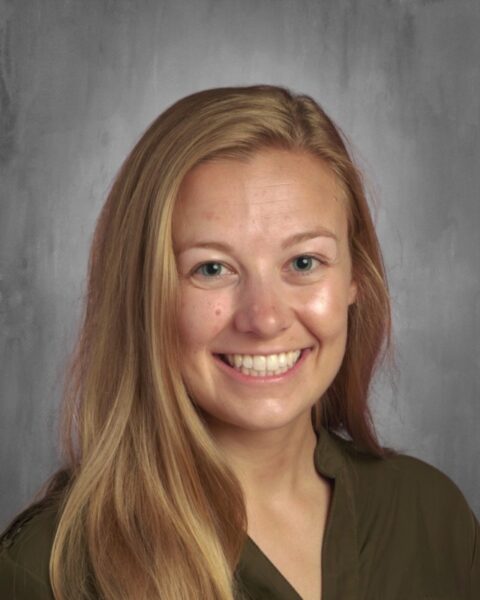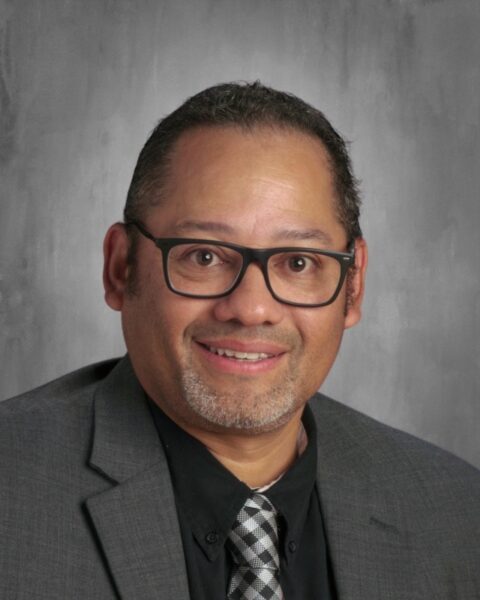Theology
Theology Faculty
Our Mission
The Theology Department is committed to leading students on a journey that systematically examines divine revelation, specifically the Catholic Faith, Moral Theology, Scripture, and Social Justice. Through such a study, it is our goal that students will have a solid understanding of the subject matter so that their own faith may be deepened to a point where they are confidently and humbly putting that same faith into action for the betterment of others. We hope that the students placed in our care will have nurtured reflective habits that aid them in striving for excellence in all things.
Course Description
This course examines the mission of the Catholic Church–her constitution, self-understanding, models, the marks of the Church, diverse roles within the Church, ecumenism, and inter-religious dialogue including the Church’s sacramental vision of the world generally, and the seven sacraments particularly. Students study ethics, moral decision making, and virtue. The nature of this course is both catechetical and theological. Students are responsible for understanding Church teaching, but they will also be challenged to engage in honest inquiry, raising difficult questions and searching for meaning and personal understanding. The questions raised in theology class will help students evaluate their own ideas about what constitutes a meaningful life, how God is active in their lives, and how to move more deeply and responsibly into their own unique gifts. Despite differences in religious backgrounds and levels of faith, the course will help students develop skill in finding common ground as well as celebrating personal differences. Some central questions for the year: How is religion shaped by society? How is society changed by religion? What does it mean to say that the Church is sacrament?
Term: Full Year (1 Credit)
This course uses the historical-critical lens to examine the Jewish and Christian scriptures found in the Bible. The course depends on careful reading of primary texts as well as relying on the best scholarship available to understand better both the library of books found in the Bible and the unified narrative of salvation it reveals. Progeny and land, the story of the patriarchs, the Exodus liberation, the Sinai covenant, the conquest of Canaan, the Davidic promise, and the prophetic tradition all figure prominently in studying the Jewish scriptures. With the Christian testament, focus fixes firmly on Jesus – who is he to each of the evangelists and to Paul, and why does he matter to each of them? Through a critical examination of the texts, students are encouraged to contemplate how biblical truths help them to reflect on their own lives, as well as their own faith and beliefs.
Term: Full Year (1 Credit)
Senior theology is dedicated to the study of social justice. Students examine personal spirituality in order that they may develop an authentic view of justice, one based in humility and a consequent understanding of responsibility. Albert Camus’ The Fall is used as an examination of conscience. Examples of Christians and people of integrity will be examined as responses to our own selfishness and the injustice we foster. Aspects of Ignatian Spirituality that are implicit to the Cheverus education become a lens for viewing the application of these theological beliefs in daily life and toil. Students read excerpts from Greg Boyle’s Tattoos on the Heart so that they may see such a response lived in the modern world. The course engages in concrete modern social justice issues including social-economic issues of poverty, hunger, the homeless, just wages, the dignity of work, business ethics, and the environment. Social issues about the dignity and sanctity of life including racism, sexism, abortion, capital punishment, euthanasia, non-violence, and the just war are studied. Students’ understanding of grace, solidarity, and cultivating virtues, which strengthen our concern for the common good, can be applied to these very real concerns our society faces.
Term: Full Year (1 Credit)
This course is an introduction to the basics of Christianity, its Church teachings, and Scripture for all Cheverus students regardless of religious background. Students study St. Ignatius of Loyola, the founder of the Society of Jesus, and are introduced to basic principles of Ignatian Spirituality. Students examine the experiences of growth and questioning, which are part of early adolescence, and explore who God is and how He calls us to faith, individually and collectively. Students become acquainted with the Old and New Testaments. Special attention is paid to God’s self-revelation, the developing Covenant, and humanity’s evolving understanding of God. The life and teachings of Jesus lead to discussions about the spirit over the letter of the law and what it truly means to be “people for and with others.” Jesus’ passion and resurrection are then seen as the Christian Passover–our rebirth to new life made possible by God’s love. A final unit on the development of the Church helps students understand how Christianity became an independent religion and how the Catholic Church relates to other Christian churches. Lessons on Catholic doctrine, liturgy, sacraments, Holy Days, saints, and structure are introduced throughout the year.
Term: Full Year (1 Credit)
This course covers the western political philosophy tradition, starting with its Greek foundations, moving through liberal ideas born of the Enlightenment, and examines twentieth century reactions and synthesis. Concurrent with the history of political thought, students marshal those ideas in verbal argument. The class will periodically become a lab science, incorporating Lincoln-Douglas and Public Forum debate formats, pressing the philosophical ideas covered into spoken arguments.
Term: Full Year (1 Credit)



